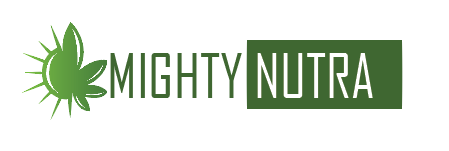How Turmeric Became One Of The Most Effective Autoimmune Disease Treatments?

The spice known as turmeric may be the most effective nutritional supplement in existence.
Many high-quality studies show that turmeric has major benefits for your body and brain. Many of these benefits come from its main active ingredient, curcumin.
Arthritis
Arthritis is a common problem in Western countries. There are several different types of arthritis, most of which involve inflammation in the joints.
Given that curcumin is a potent anti-inflammatory compound, it makes sense that it may help with arthritis. In fact, several studies show that there is an association.
In a study in people with rheumatoid arthritis, curcumin was even more effective than an anti-inflammatory drug. Many other studies have looked at the effects of curcumin on arthritis and noted improvements in various symptoms.
Arthritis is a common disorder characterized by joint inflammation. Many studies show that curcumin can help treat symptoms of arthritis and is, in some cases, more effective than anti-inflammatory drugs.
Multiple Sclerosis
More and more people with MS are using complementary and alternative approaches like herbs and supplements to augment prescription medication treatments for symptoms like pain, spasticity, memory loss, and fatigue.
One of the factors influencing MS progression is oxidation or free radicals. Curcumin acts as an antioxidant. Further, curcumin can reduce inflammation by inhibiting many of the enzymes and factors that lead to the activation of immune responses and inflammation. In addition to these direct effects on inflammation, curcumin can reduce cell death, although the way in which it does this is not well-understood. Together, these factors are responsible for a substantial portion of MS disease progression.
Sciatica
Research has shown that using turmeric for inflammation may target flare-ups and painful bouts with upper and lower back pain. By reducing the body’s natural inflammatory response, it’s thought that curcumin may help relieve pain.
Turmeric is also a powerful antioxidant capable of improving our immune system response. It’s important to note; curcumin could help repair herniated discs, sciatica, or physical problems with the spine. It also may reduce inflammation, improve oxygen and nutrient flow, and promote the healing process
Fibromyalgia
There is no cure for fibromyalgia, only the possibility of using medications to combat symptoms as they arise. These drugs can include anti-inflammatories, antidepressants, and other treatment options.
Curcumin from turmeric is a highly effective pain reliever and should be part of a diet for fibromyalgia. In a double-blind crossover trial, participants taking curcumin two days before and three days after a physical workout experienced moderate to large pain reduction and slightly increased performance.
If you’re looking for a natural way to control symptoms related to fibromyalgia while maintaining an active lifestyle, curcumin supplements can improve your situation.

Chronic Fatigue
Turmeric’s antioxidant properties also demonstrate an ability to reverse impaired exercise performance resulting from oxidative stress in skeletal muscle. These findings suggest possible therapeutic applications for the treatment of muscle injuries, as well as controlling symptoms of fibromyalgia and chronic fatigue syndrome.
Studies have shown significant evidence that curcumin can reduce both oxidative stress and chronic inflammation associated with these disorders and widespread musculoskeletal pain. Turmeric’s properties may help with muscle pain, growth, and recovery following exercise-induced muscle damage.
IBS
Its potential healing properties come from curcumin, which is an anti-inflammatory compound it contains. Turmeric has recently attracted attention for its potential to reduce IBS symptoms. IBS is a common disorder of the digestive system that causes symptoms, such as stomach cramps, diarrhea, and constipation.
Psoriasis
Thanks to its anti-inflammatory, antimicrobial, and antioxidant properties, turmeric may be an effective treatment for a variety of skin conditions, including acne, eczema (atopic dermatitis), photoaging, and psoriasis.
One review published in the January 2018 issue of Open Access Macedonian Journal of Medical Sciences suggests oral curcumin in particular as an effective and safe treatment option for psoriasis.
Scleroderma
Scleroderma causes the immune system to attack otherwise healthy connective tissue, resulting in scarring. This scarring usually occurs under the skin and around internal organs and blood vessels.
Curcumin’s positive effects on scar formation are thought to help manage the effects of scleroderma.
Vitiligo
Vitiligo is a condition that causes skin depigmentation, resulting in white patches of skin. In some cases, curcumin may prevent oxidative stress in the epidermal skin cells that are responsible for producing melanin.
Acne
Acne is a common skin condition characterized by blackheads, whiteheads, and pustules. A skin cream containing curcumin can potentially be used to regulate skin sebum production, which may help people who have acne.
Depression
Curcumin has shown some promise in treating depression as well.
In a controlled trial, 60 people with depression were randomized into three groups. One group took Prozac, another group took 1 gram of curcumin, and the third group took both Prozac and curcumin.
After 6 weeks, curcumin had led to improvements similar to those of Prozac. The group that took both Prozac and curcumin fared best.
To Summarize
According to much research, curcumin treatments may be useful in treating skin disorders, especially as past research suggests curcumin is relatively safe even at high doses. Thanks to its potent anti-inflammatory properties, curcumin may be a safe and effective long-term treatment option for people with osteoarthritis (OA), multiple sclerosis, IBS, etc.
When contemplating adding more turmeric to your diet, bear in mind that you may find it difficult to get the advantages just through food.
Although curcumin is the most active component in turmeric, its naturally occurring amount is just around 3% by weight. If you want the maximum impact, or if you're already at risk for heart disease, you might consider taking a curcumin extract or supplement with a considerably greater quantity of curcumin.
